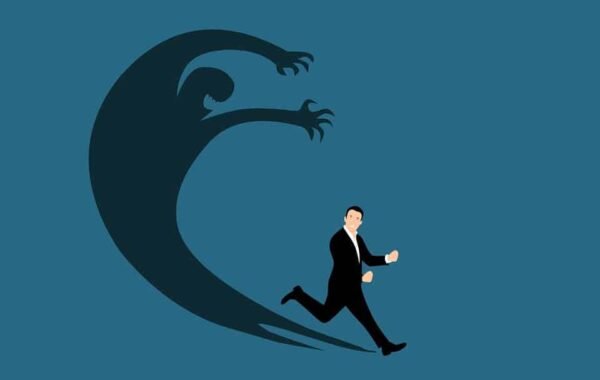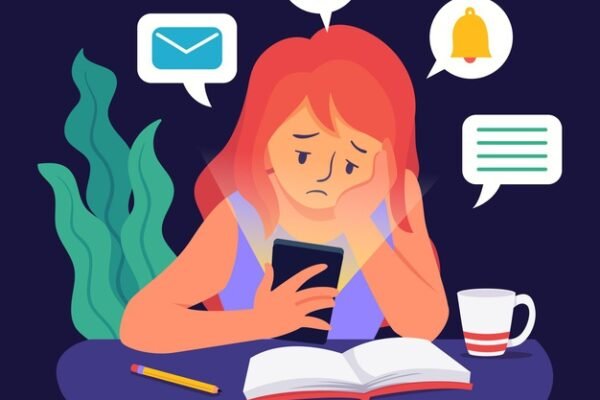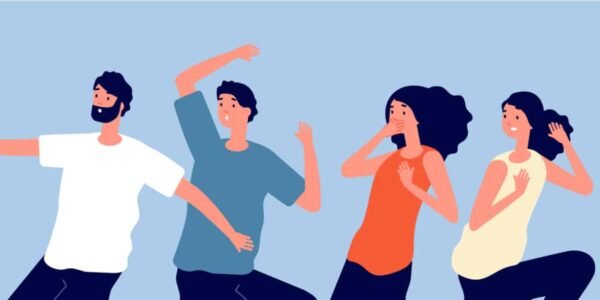Anxiety Disorders & Phobia
It also covers- Anxiety neurosis, Phobia, Phobic disorder, Nervousness, Restlessness, Panic, social anxiety disorder (social phobia), panic disorder, agoraphobia, stress-induced anxiety disorder, generalized anxiety disorder (GAD), substance/medication-induced anxiety disorder, anxious apprehension, and anxiety disorder due to some other medical condition.

When anxiety becomes a disorder?
We all feel anxious at times. Most of the time, a bit of anxiety is helpful and not necessarily bad. It keeps us alert, informed about the situations and possible threats and, thus, help us to manage the situation appropriately. A student approaching a problematic examination or a job aspirant feeling tensed before an interview helps them perform better by remaining extra cautious and alert. So anxiety up to the level of alertness is good for helping ourselves handle fight-or-flight response against the challenging situation we face in our daily lives.
Similarly, we all do have fear factors, and sometimes to get the thrill of that, we spend a lot watching horror movies, going for some adventurous hiking or even reading such books. Sometimes, people do not get thrilled through all these; they feel panic & become anxious from trivial, apparently harmless situations and thus suffer helplessly.
Pathological anxiety is excessive fear and anxiety and related behavioural disturbances leading to an abnormal psychological condition or a reaction to primary medical disease.
We classify primary anxiety disorders as per the duration, course, existence and nature of precipitating factors, i.e., the situations which creates the problems.
So what are anxiety disorders? What are the symptoms of them?

Anxiety is a common emotion; it is a stress reaction; everyone feels anxious.
Anxiety disorders are very different from normal anxiety; many anxiety disorders cause overwhelming anxiety and fear. Because of anxiety, people may avoid colleges, schools, social gatherings, which can worsen their symptoms.
Irrespective of the variety of the disorder, in most cases following symptoms are commonly found.
- Palpitation with an increase in heart rate
- A feeling like suffocating or choking
- Dizziness with poor cognitive reactions
- Excessive sweating with chest pain
- Sudden flushing or chills
- Stomach upset or diarrhoea
- Feeling a loss of control
- Fear of death
- Excessive drowsiness or sleeplessness
What are the types of Anxiety disorders?
Panic disorder-
Panic disorders are the presence of recurrent & unpredictable panic attacks, which are distinct episodes of extreme fear with the discomfort associated with various physical symptoms. Sudden onset, developing within 10 minutes and usually resolves over an hour, and they occur unexpectedly. The precipitating factors behind the panic attacks are due to some specific situations or location. Furthermore, this situations varies from individual to individual.
The exact aetiology of panic disorder is unknown but appears to be involved in genetic predisposition, altered automatic response to various stimuli, significantly high mental stress and social learning; This disorder shows familial aggregation, acute panic attacks appear to be associated with increased noradrenergic discharge in locus coeruleus.
Symptoms of Panic attacks-
- Palpitations, pounding heart, accelerated heartbeat
- Sweating, trembling or shaking
- Shortness of breath
- Feeling of choking
- Chest pain, discomfort

- Nausea Abdominal pain
- Fear of loss of control
- Fear of death
- Paraesthesia
- Chills or hot flushes

Agoraphobia-
Agoraphobia is an irrational fear of being in places where the patient may feel trapped or unable to escape; it leads to progressive restrictions in lifestyle.
People with this variety of anxiety disorder suffer from the following symptoms-
- Fear of crowded places like markets, social gatherings, movie theatre, or similar places where many people are in close vicinity.
- The patient fears and avoid riding buses, metro, aircraft etc. While riding such public transportation, the patients feel helplessly suffocated or trapped.
- Avoid going out from home alone or stay at home alone.
Generalized anxiety disorder (GAD)-
It is the chronic form of anxiety where there is nothing to provoke such anxiety. People with this disorder anticipate disaster out of some trivial, apparently harmless situation. Females are the most typical sufferer than men. The worry may be due to self, job, money, family, health or any issues which have some value in their life. The patients with such disorder, see the worst out of everything, and if they experience the slightest adverse situation, he considers that a trigger for becoming more anxious and negative. They possess a kind of “apprehensive expectation” of something wrong would be the outcome of their concerns.
There may be associated symptoms like:-
- Muscular tension or motor restlessness
- Sympathetic autonomic overactivity
- The subjective experience of nervousness
- Irritability
- Difficulty maintaining concentration- mind going blank

- Easily fatigued
- Nausea, loss of appetite, diarrhoea, constipation
- Orthostasis, dry mouth, and dry eyes
- Headache, weight gain
- Sexual dysfunction, impotence, impaired ejaculation
- Sleep disturbance
The antianxiety effects of the various benzodiazepines and side effects such as sedation and memory impairment are influenced by their relative binding type 1 and type 2 receptor sites. Serotonin also appears to have a role in anxiety.

Phobic Disorders (PD)
Phobic disorders are a marked and persistent fear of objects or situations, which results in an immediate anxiety reaction.
- Unlike patients with other anxiety disorders, people with phobias experience anxiety only in specific situations.
- Common fears like closed spaces, fear of blood, and fear of flying, loss of self-control, or a fear of death or impending demise during a panic attack
- It is typically found during childhood or early adulthood. Familial aggregation may occur.
Social phobias–
When an individual is exposed to unfamiliar individuals or possible examination and evaluation by others
- Ex. Having conversations at a party, use public restrooms, meeting strangers, etc.
Is there any self-help for managing anxiety disorders?
- Generally, a person can manage anxiety at home without any clinical supervision.
- Deep breathing exercises, yoga, resting in the dark, long baths will help in reducing stress and anxiety.
- Taking enough break from professional work and educational activities, organizing daily tasks, making to-do lists.
- Replacing negative thoughts with positive thoughts
- Talk to a supportive person or a family member.
- Suppressing anxiety and stress may lead to the worsening of anxiety disorders.
- Avoid a sedentary lifestyle by active involvement in physical exercise. Physical activity helps in improving positive thinking and reduces stress.
- Cultivate a creative mind- do some painting, take music lessons, gardening or similar activity which the patients love most.
How does homoeopathy help in anxiety disorders?
Homoeopathy is safe and better in many ways, it treats a person as a whole, and with medications that are devoid of chemical side effects, a homoeopathic physician prescribes a constitutional remedy by case analysis. There are various medications available, which are prescribed, determining appropriate strength and dosages depending on the individual’s constitution and depth of the condition. There are multiple medications frequently used in anxiety disorders like- Gelsemium, Argentum Nit, Natrum Mur, Sepia, Ars Alb, Silicea etc. However, self-prescription can prove harmful, and parents are not encouraged to self-prescribe any of the Homeopathic medications without consulting an appropriately qualified doctor from a recognized university.
Let our team of Let’s homoeopathy help you fight this disease. We should remember that mental diseases are not taboo – these are similar to any other medical problem.
So, do not hesitate and waste more time! Get a consultation with a qualified and experienced Homeopath today from the comfort of your home through Let’s Homeopathy. We will deliver the medicines to your doorstep too!